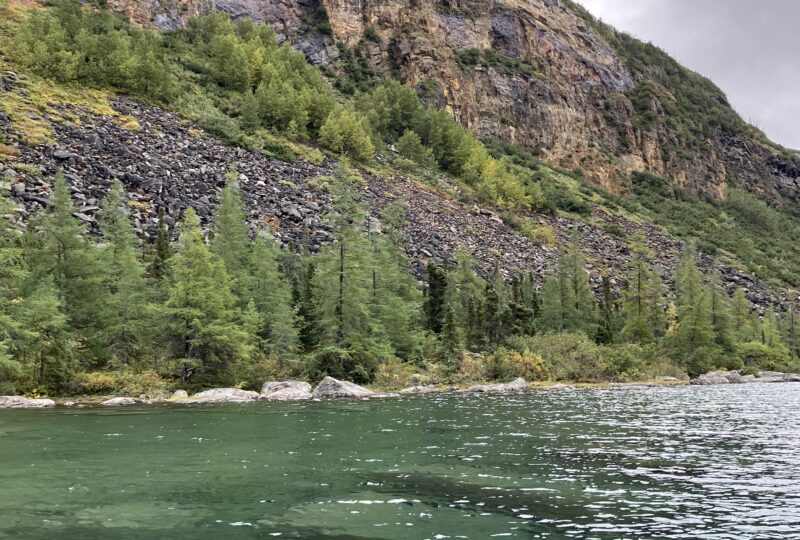About the FROST Program
FROST is a transdisciplinary, community-embedded research initiative that brings together 16 natural scientists and social scientists from 6 Nordic countries to investigate how warming winters and changing snow cover affect Arctic lake ecosystems and the livelihoods of the communities that depend on them. Co-developed with Indigenous partners across Inuit Nunaat and Sápmi, FROST promotes equity, inclusivity, and the integration of place-based knowledge. The project compares twelve lakes across the circumpolar North, along gradients of ice and snow cover and seasonal variability.
Context of the two PhD projects
We are seeking two PhD students for 4-year positions based at the Eau Terre Environnement Research Centre of the Institut national de la recherche scientifique (INRS) in Québec City (Quebec, Canada) – a francophone university committed to sustainability and interdisciplinarity science. The projects will investigate how snow and ice cover affect fish habitat quality (temperature, oxygen, light penetration, mixing regime) and fish health (notably, fatty acid profiles and mercury levels). Students will work closely with Inuit communities and the broader FROST team, which includes experts in remote sensing, physical limnology, food webs, and socioecology.
Depending on the candidate’s profile and co-supervisions, the work may include habitat modeling, food web transfer, and biogeochemistry. One position will focus on understanding the causes and recurrence risk of a major fish kill in Lake Tasikallak, near Kangiqsualujjuaq. The second project will compare two lakes near Mittimatalik (Pond Inlet, Nunavut): one near Goose camp lake on Bylot Island, and another that is actively fished by members of the local community.
Both students will be based at LimNord, a Nordic limnology laboratory specialized in small lake Arctic ecosystems. Research at LimNord focuses on dissolved organic matter (DOM), its microbial and photochemical transformation, and its effects on greenhouse gas emissions, thermal regimes, oxygen and light availability, drinking water quality, and salmonid habitat sustainability. These studies are conducted in the context of water browning linked to permafrost thawing and the greening of the Arctic. Within FROST, the PhD research will focus on fish habitat quality under changing ice and snow regimes, with close attention to the role of DOM and water browning.
Start date
Fall 2025 or Winter 2026
Research supervision
Supervision: Isabelle Laurion, professor, INRS
Co-supervision: Milla Rautio (UQAC) and/or Raoul Marie Couture (U. Laval) depending on the project angle
Study program
PhD in Water Science (program details in French only), Eau Terre Environnement Research Centre, INRS
This program requires a degree equivalent to a Canadian master’s, with a minimum GPA of 3.2/4.3 (or equivalent). The program includes 6 credits of coursework, a doctoral exam of 6 credits, and 78 research credits. More details on admission requirements are available here.
Funding
All INRS students receive financial aid (more info).
Required qualifications
We are looking for motivated, curious, and collaborative individuals who meet the following criteria:
- Master’s degree (or equivalent, required before the PhD start date) in biology, ecology, environmental chemistry, or environmental modelling . Background in limnology, physics, or Arctic science is an asset.
- Strong commitment to working respectfully and collaboratively with Indigenous and northern communities, including a willingness to co-develop knowledge.
- Interest in remote fieldwork, including under challenging Arctic conditions (summer and winter), and an openness to engaging with Inuit culture and outreach activities.
- Excellent spoken and written English; basic French or strong willingness to learn during the first year. Québec City is a French-speaking environment; the few required courses are taught in French at INRS.
How to apply
For more information about the PhD projects, please contact Professor Isabelle Laurion (isabelle.laurion@inrs.ca).
Please use the form below to send your application package before June 15, 2025 including the all of the following in PDF:
- Cover letter describing your motivation and research interests.
- Resume detailing your education, experience, language skills, and relevant competencies.
- Bachelor’s and Master’s diplomas and transcripts (originals + certified English/French translations if applicable). If the Master’s degree is not yet completed, please provide a recent transcript and/or a statement from your institution or supervisor confirming the status of your project.
- List of publications.
- Abstract or short summary of your Master’s thesis.
- Contact information for two academic references.
Selected applicants will undergo academic evaluation by an impartial reviewer. Shortlisted candidates will be contacted for an interview.

